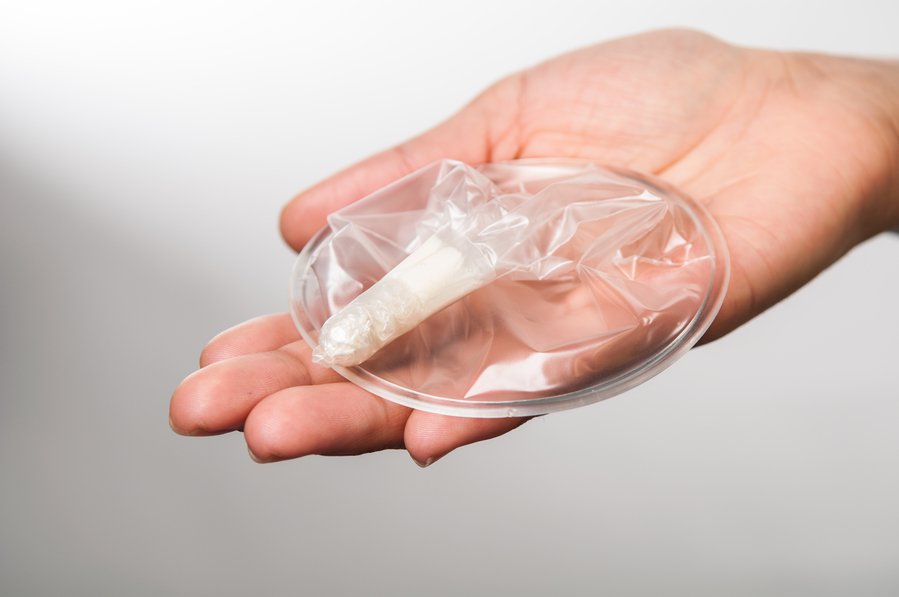The internal condom also known as the female condom is used as a barrier method for contraception. These are great at preventing pregnancy and STDs.
What Is An Internal Condom?
Internal condoms, also known as female condoms, are an alternative to regular condoms. These provide pretty much the same great protection from pregnancy and STDs. Instead of going on the penis, these go inside the vagina for pregnancy prevention or into the vagina or anus for protection from STDs. For a long time, these were called female condoms but people of any gender can use these for vaginal or anal sex.
Internal condoms are little nitrile (soft plastic) punches that are put inside the vagina. These cover the inside of the vagina, creating a barrier that stops sperm from reaching an egg. If sperm can’t get to an egg, can’t get pregnant. These also help prevent sexually transmitted infections.
Is An Internal Condom Effective?
If used perfectly every single time during sex, internal condom effectiveness is 95%. But people are not perfect, so in real life, the effectiveness is 79% which means about 21 out of 100 people using this as the main method of birth control will face unplanned pregnancy each year.
To make it effective and work as well as possible is to use it correctly and properly every time while having vaginal or anal sex. That means keep it the whole time from start to finish. Make sure the condom is placed correctly in the vagina or anus the right way before there’s any skin-to-skin genital contact.
Make internal condoms better at preventing pregnancy by using along with another birth control method like pill or iucd. By this, there is some protection from STDs and double protection from pregnancy.
A regular condom doesn’t come together with an internal condom. Each kind of condom is designed to be used on its own and doubling up won’t give extra protection. One condom, if used correctly is the way for protection, regardless of the kind of condom used.
How To Use It?
An internal condom is bigger than a regular condom but doesn’t worry, it’s not uncomfortable when inserted correctly. The steps are as follows –
- Check the expiry date and open it carefully.
- This comes already lubricated but more lube can be added if want.
- If putting the condom in the anus, remove the inner ring. If putting in the vagina, leave the ring in.
- Relax and get into a comfortable position. Standing with one foot on a chair, lying down, or squatting is common faves.
- If it’s going in the vagina, squeeze together the sides of the inner ring at the closed end of the condom and slide it in like a tampon. Push the inner ring into the vagina as far as it can go, up to the cervix.
- If it’s going in the anus, just push the condom in with the finger.
- Make sure the condom is not twisted. Pull out the finger and let the outer ring hang about an inch outside the vagina or anus.
- Hold the condom open as the penis or sex toy is going into the condom to make sure it does not slip to the side between the condom and the vagina or anus.
How to Buy Them?
Internal condoms are available at stores, online, and some health centers. But it can sometimes be a little harder to find than a regular condom.
Advantages of The Internal Condom
- Protecting from pregnancy
- Preventing from stds like hiv, chlamydia and gonorrhea
- Increase sexual pleasure and make sex better
- Made from soft plastic material and totally hypoallergenic; can be used by people with latex allergies or sensitivities
- Family planning and method for contraception
Disadvantages of the Internal Condom
- Irritation on the vagina, vulva, penis, or anus
- Take care by adding extra lube as it can cause friction
- Require practice to use correctly
- Sometimes, unwanted sounds are made by these
- A condom can break and slip out of the vagina
Conclusion
Internal condoms may take a bit of practice to get used to. Using it correctly makes it effective. These are the small, discreet, and portable methods to get big protection from pregnancy and STDs.
References –
- https://pubmed.ncbi.nlm.nih.gov/10863812/
- what are the benefits & advantages of internal condoms? (plannedparenthood.org)
- female condoms: the pros and cons of internal condoms (helloclue.com)













